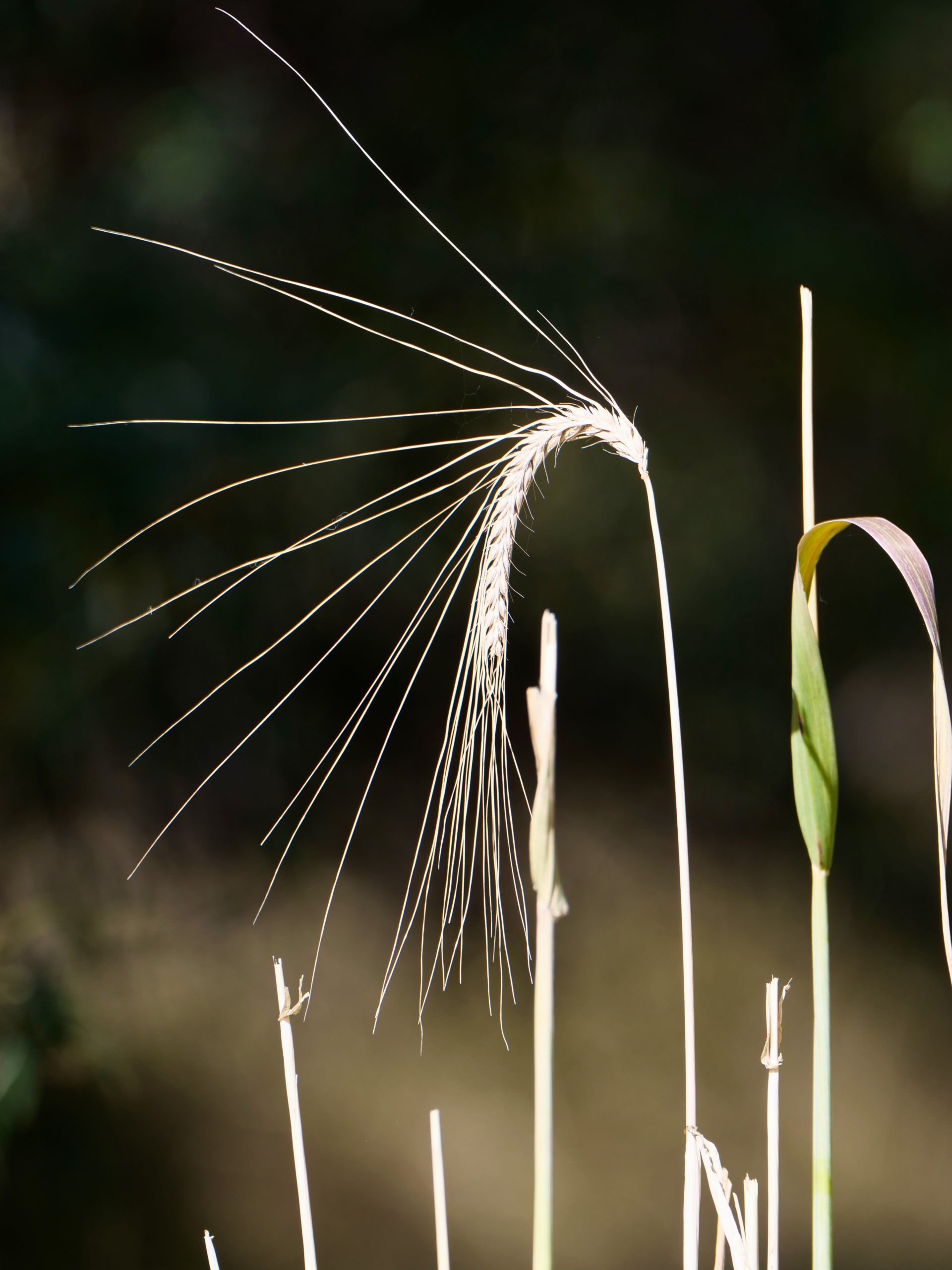This wild wheat is growing in a depression.
However, its “lowland” home is on the Tibetan Plateau, so this grain is nonetheless unusually high grown – over 3,000 metres above sea level.
I photographed this plant on 22 October 2019 in a place that obviously had been inhabited by humans, but was now re-“wilding”, after the humans had departed.
There were traces of buildings’ foundations, and many poplar and fruit trees, in rows.
This abandoned site, near Chaka in China’s Qinghai Province, had for some decades – via the so-called “Cultural Revolution” – been a prison camp, a place of so-called “re-education”.
Mao’s China may have lacked a Solzhenitsyn, but not a Gulag system.
Apparently, those not released from this particular prison had eventually died there.
For most such prisoners, their “crime” would simply have been the fact that they were highly educated, urbane persons.
Most or all of them would have been transported from far away to this remote, sparsely populated place – one with too few local, actual criminals to sustain the prison’s continued existence.
The Tibetan Plateau is one of the good places to look, if you are looking for wild “ancestors” of the grain-bearing grasses that most of us know only via their selectively bred versions.
This post’s two musical selections feature “domesticated” grains.
English folksinger-guitarist Gerry Hallom (nowadays, I think, a sociologist) spent some years living in Australia, and his repertoire included some fine interpretations of Australian material.
Song of the Wheat is Hallom’s setting of a poem of the same name by A.B. “Banjo” Paterson.
(It is from his 1989 album Old Australian Ways)
John Barleycorn Must Die is a very much older, much more complex, multi-layered, British song.
It has various titles, variations and differing moods.
Some listeners have misunderstood it to be a song about a very unfortunate, eventually-murdered human individual with an unusual surname!
Some versions render it merely a routine, jolly drinking song.
It is a drinking song, of sorts, but also a satirical and mysterious one, with echoes of ancient, pagan beliefs and rituals.
Discover more here
Take a deeper, more speculative dive, here.
Countless “folk” singers have performed and recorded John Barleycorn, but perhaps the most uncanny version on disc is the title piece on the 1970 album by a so-called “rock” band.
Traffic’s version is not remotely “rock”, in fact. That recording’s story is well told here.
More than forty years later, in 2011, Winwood delivered this potent, solo performance:
If you are new to Steve Winwood, you will surely be amazed to know the following fact…
As the young prodigy in the Spencer Davis Group, his ability to sing and play in a very different idiom was so startling that many admiring black American listeners refused to believe it when informed that they were listening to a white English teenager!
Winwood’s Facebook site is likely to provide quite a few nice surprises to any newcomer.
